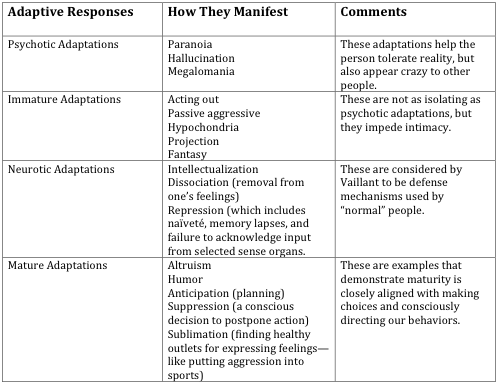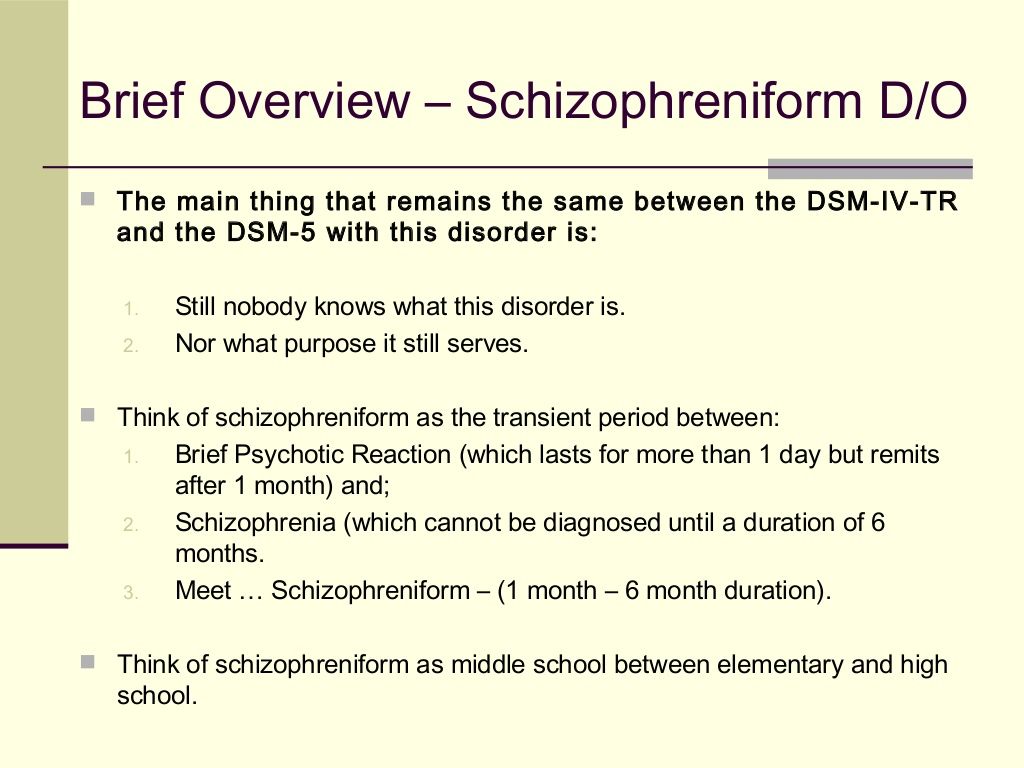How to help people with panic attacks
How to Help Someone Having a Panic Attack
A panic attack is a brief but intense rush of fear.
These attacks involve symptoms similar to those experienced when facing a threat, including:
- intense fear
- a sense of doom
- sweating or chills
- shaking
- pounding heart
- difficulty breathing
- head and chest pain
Panic attacks differ from a typical fear response because there’s no actual threat involved.
“The body is saying there’s danger, when in reality there’s none present,” explains Sadie Bingham, a clinical social worker who specializes in anxiety and provides therapy in Gig Harbor, Washington.
Panic attack triggers aren’t always easy to identify, so people who have one attack often worry about having more, especially in public.
Panic attacks usually feel very uncomfortable and cause significant distress. Many people believe they’re experiencing a heart attack or other life-threatening issue.
If you know someone who experiences panic attacks, there are several things you can do (and avoid doing) to help them in the moment.
Keeping your cool is one of the best ways you can help.
Panic attacks usually don’t last long. “The most intense feelings tend to last between 5 and 10 minutes,” Bingham explains.
But someone having an attack may not have much concept of time as it happens. They might feel terrified or think they’re about to die.
Even if you feel a little afraid yourself, stay calm. If your voice seems to help (and they haven’t asked you to keep quiet), talk to them in a calm voice.
What to say
Try:
- reassuring them you won’t leave
- reminding them the attack won’t last long
- telling them they’re safe
Most people who experience panic attacks or live with other types of anxiety have their own go-to coping methods. When offering support, keep in mind your loved one knows best when it comes to what will help most.
During an attack, however, they might find it harder to communicate this. Consider asking in advance how you can offer assistance if they experience an attack around you.
During an attack, it’s okay to calmly ask what you can do to support them. Just prepare for the possibility of a short or curt response.
The fight-or-flight stress response can affect the ability to think and behave logically, according to Bingham. “Try to remain neutral, and don’t take their response personally,” she recommends.
What if they want me to leave?
As long as they’re not in immediate danger, take a few steps back and give them some space. Stay nearby so you can still keep an eye on things, and let them know that should they change their mind, you’ll come right back.
If you haven’t already, take some time to familiarize yourself with the early signs of a potential panic attack.
Panic attacks commonly begin with:
- a feeling of terror or dread
- hyperventilation or shortness of breath
- feelings of choking
- a pounding heart
- dizziness and shaking
Not everyone experiences panic attacks in the same way, so it’s best to ask what signs they tend to experience.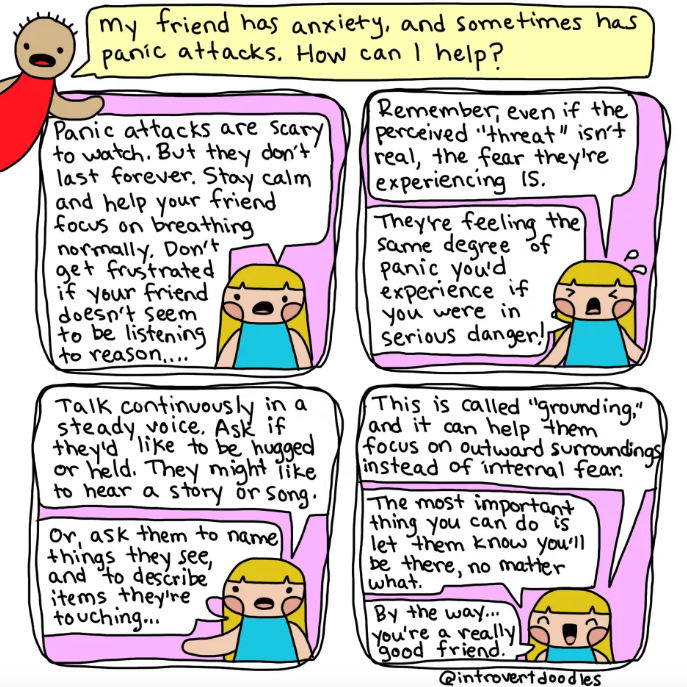
The sooner you realize what’s happening, the faster you can help them get to a more private place, or wherever they need to feel more comfortable.
A soothing, familiar voice helps some people, but try to avoid repeatedly saying things like “don’t worry” or asking them if they’re alright over and over.
Of course you mean well, but your words may not have much benefit in the moment. They can also make the situation more stressful, since your loved one may believe they’re doing something wrong by not being alright.
How to make your words more actionable
Take action with your words by:
- asking if they want to leave the room and go somewhere else
- reminding them to keep breathing
- engaging them in light conversation, unless they say they don’t want to talk
Panic attacks can be confusing as well as scary. People generally can’t predict them and there’s often no clear cause. They can happen in stressful situations but also during calm moments or even during sleep.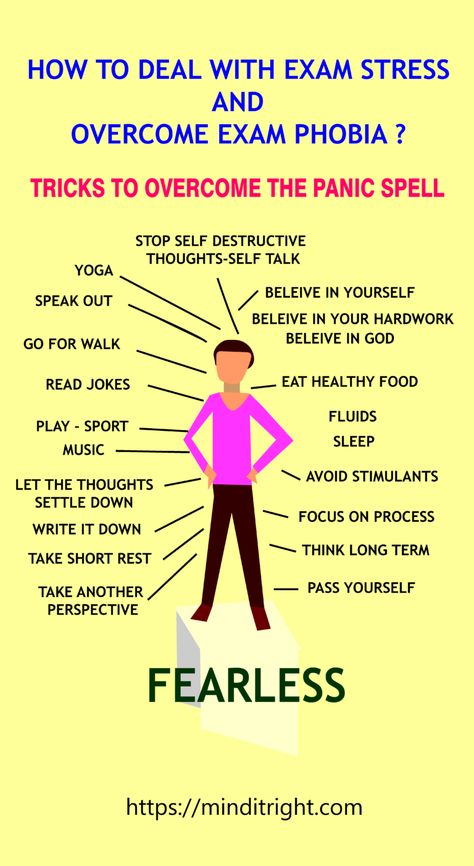
It might seem helpful to tell your friend there’s nothing to be afraid of. But they’re probably perfectly aware there’s no actual threat.
That’s part of what makes panic attacks so confusing. The reaction matches a fear response — but nothing’s happening to cause that fear. In response, someone who gets panic attacks might begin to fear the symptoms themselves, or link them to a serious health issue.
“It’s typical to feel embarrassed or ashamed of such an intense reaction,” Bingham explains. “But having a trusted companion offer compassion can allow space for the person to return to baseline.”
You can be that person even without understanding why they get panic attacks. That’s far less important than your ability to offer empathy and recognize their distress as real and significant.
People often have a hard time sharing their experiences with mental health issues, including panic attacks.
Some avoid talking about mental health issues because they believe others won’t understand what they’re going through. Others worry about being judged or told what they experience isn’t a big deal.
Others worry about being judged or told what they experience isn’t a big deal.
Outsiders often don’t understand the fear caused by panic attacks and may even consider it illogical.
But the response is real, and the person experiencing the attack can’t control it.
An empathic response can be as simple as, “That sounds really tough. I’m sorry you experience that. Let me know what I can do to support you.”
Grounding techniques can have benefit for a range of anxiety issues, including panic attacks.
“Grounding techniques can help contain panic attacks after they begin,” explains Megan MacCutcheon, a therapist in Vienna, Virginia.
These techniques help the person focus on what’s actually happening, not their fear of the attack. They’re often most helpful once the intensity of the attack has faded a bit.
Quick grounding tips
To help someone ground themselves, you can try:
- physical touch, like holding their hand (if they’re okay with it)
- giving them a textured object to feel
- encouraging them to stretch or move
- encouraging them to repeat a soothing or helpful phrase, like “this feels awful, but it’s not going to hurt me”
- talking slowly and calmly about familiar places or activities
Say you just sat with your friend while they had a panic attack.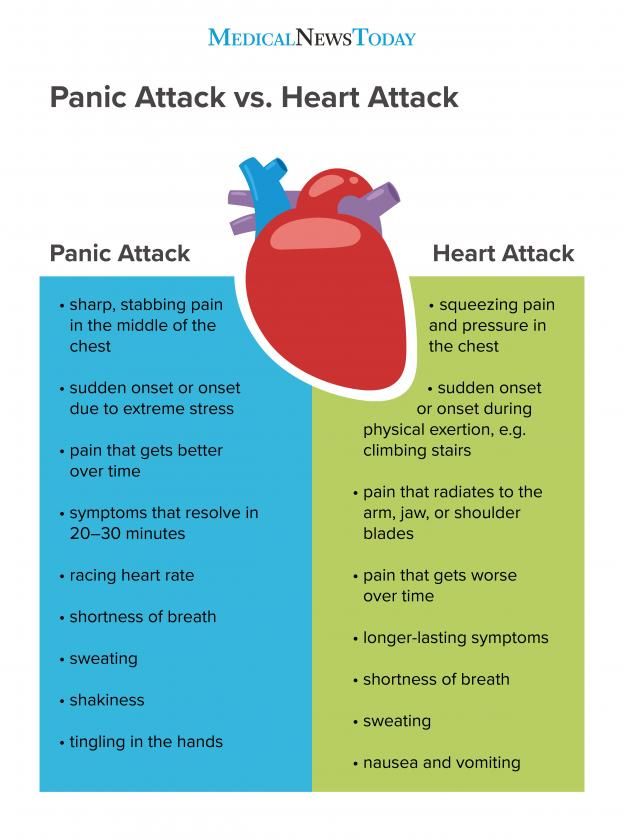 When it’s over, they seem calmer but tired. You had plans to see a show, one you’d both been looking forward to, but your friend asks you to take them home instead.
When it’s over, they seem calmer but tired. You had plans to see a show, one you’d both been looking forward to, but your friend asks you to take them home instead.
Naturally, you’re probably disappointed. But remember: Your friend can’t help what happened. They’re probably disappointed and exhausted. They may also feel bad about ruining your plans, which can compound the distress associated with the attack itself.
It’s common to feel completely wiped out as your body and its processes return to normal after an extreme fear response. Someone who’s just had a panic attack might not feel up to anything beyond quiet relaxation.
“Inquiring what they need and honoring that request is crucial,” Bingham says. “Asking too much after a panic experience can aggravate the healing process.”
You might think going to see the show will cheer them up or improve their mood, but forcing them to keep engaging when they would prefer space can keep that stress response lingering, Bingham explains.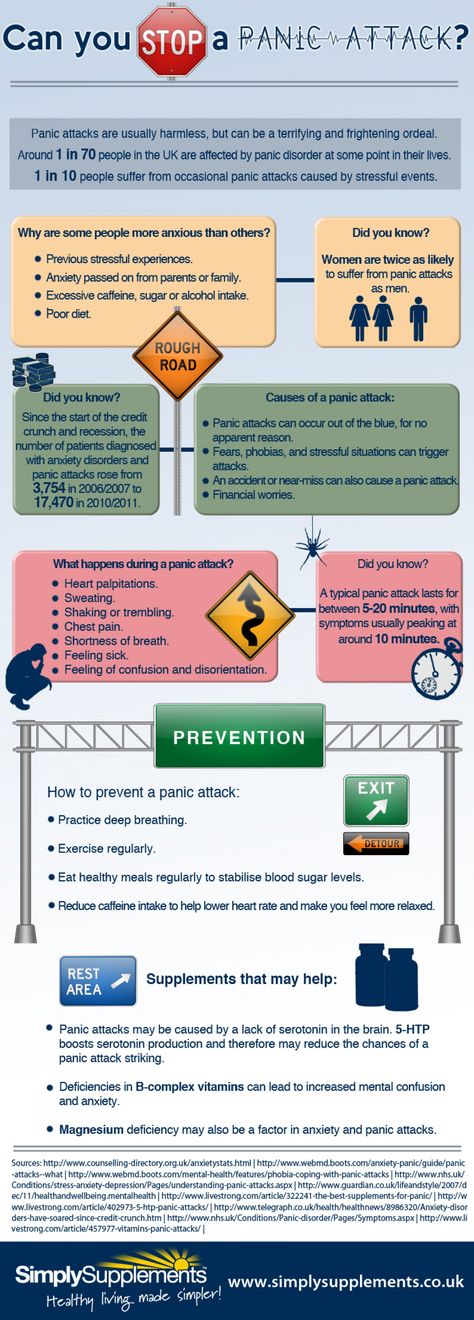
If someone chooses to tell you about their panic attacks, take this as a sign of trust.
To show respect for their experience and honor this trust:
- respond with compassion
- be mindful of your words and actions, during an attack and at any other time
You might have all the best intentions, but it’s entirely possible to make someone feel bad without realizing you’re doing so.
Keeping these suggestions in mind can help you avoid unintentional harm:
Don’t compare normal stress and fear to panic
Maybe you’ve felt stressed or terrified in a dangerous situation. You might even have anxiety yourself.
These experiences aren’t quite the same as a panic attack, though. Avoid trying to draw comparisons between your different experiences. Unless you also get panic attacks, you probably don’t entirely understand how they feel.
If you have experienced extreme fear, let that memory inform you on what your friend is going through.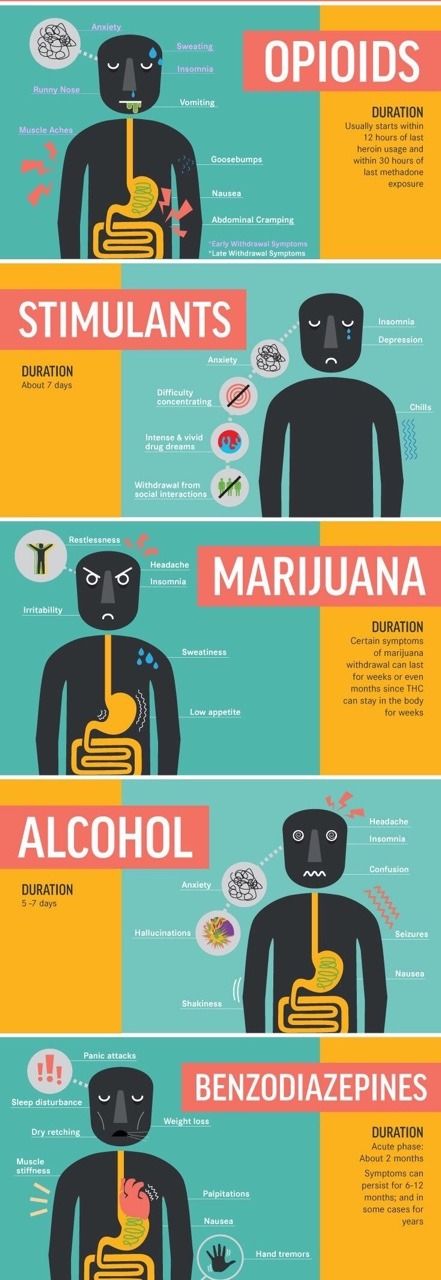 Remind yourself they aren’t just afraid or stressed.
Remind yourself they aren’t just afraid or stressed.
They may also feel:
- helpless
- unable to manage what’s happening
- physical pain or discomfort
Don’t shame or minimize
It’s pretty common to worry about having a panic attack, especially in front of strangers, or believe the attack might annoy or inconvenience friends or loved ones.
“People struggling with anxiety or panic attacks might intellectually understand the response is illogical. But hearing that from someone else can increase their isolation,” Bingham explains.
Avoid saying things like:
- “Just relax. There’s nothing to be afraid of.”
- “You’re upset over that?”
- “What’s wrong with you?”
You might not intend to make your friend feel ashamed, but denying the reality of their distress can certainly have that effect.
Don’t give advice
Not every coping technique works for everyone. Deep breathing and other relaxation techniques can have benefit, but they often help most when practiced regularly, MacCutcheon says.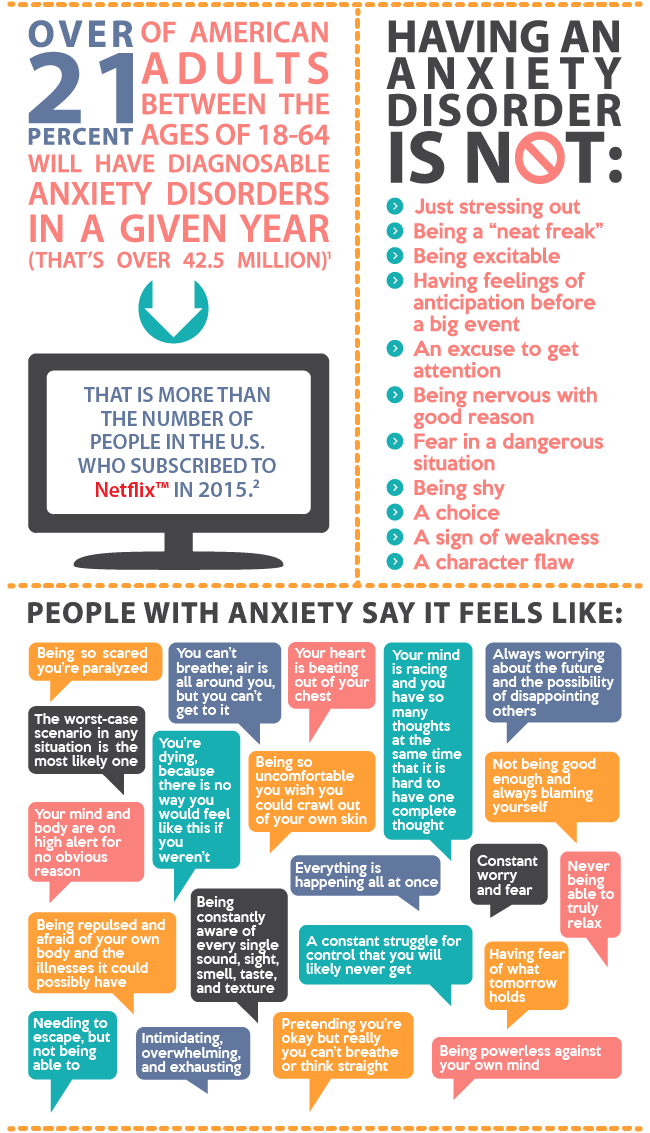
“When these techniques are only utilized during moments of panic, they often wind up backfiring. Deep breathing turns into hyperventilating and the mind becomes too overwhelmed to focus on unfamiliar things.”
While it can help to remind your friend to breath, telling them to take deep breaths may not help.
In short, avoid telling someone how to manage symptoms. Sure, you may have heard yoga, meditation, or giving up caffeine can help. But you don’t know what your friend has already tried unless they’ve told you.
Wait until you’re asked for suggestions. If you have personal experience, you might say, “I get panic attacks too and I’ve found yoga really helpful. If you’re interested in trying it out, we could go together sometime.”
It can be frightening to watch someone have a panic attack, but at what point should you bring in additional help? It’s hard to say.
Calling your local emergency number might seem like the safest move, but this can often make the situation even more stressful for the person having a panic attack.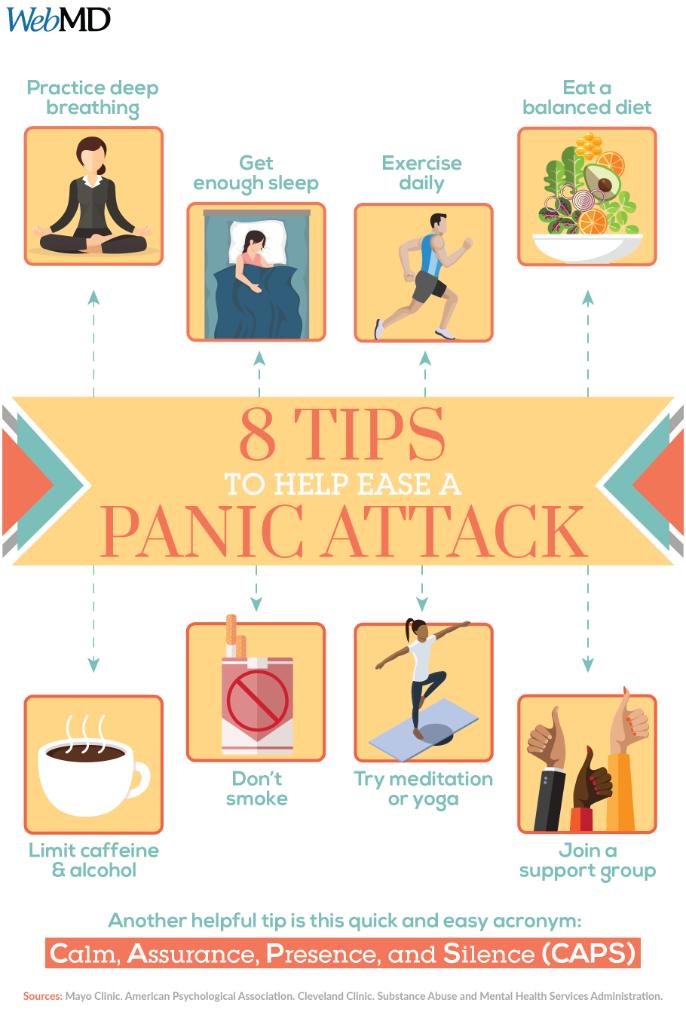
Simply sticking around and seeing them through the experience might not feel like much to you, but it can make a significant difference for the person having the attack.
That said, reach out for emergency help if:
- chest pain feels like squeezing (not stabbing) and moves to their arms or shoulders
- symptoms persist for longer than 20 minutes and get worse, not better
- shortness of breath doesn’t improve
- pressure in the chest lasts more than a minute or two
Crystal Raypole has previously worked as a writer and editor for GoodTherapy. Her fields of interest include Asian languages and literature, Japanese translation, cooking, natural sciences, sex positivity, and mental health. In particular, she’s committed to helping decrease stigma around mental health issues.
How to Help Someone Having a Panic Attack
A panic attack is a brief but intense rush of fear.
These attacks involve symptoms similar to those experienced when facing a threat, including:
- intense fear
- a sense of doom
- sweating or chills
- shaking
- pounding heart
- difficulty breathing
- head and chest pain
Panic attacks differ from a typical fear response because there’s no actual threat involved.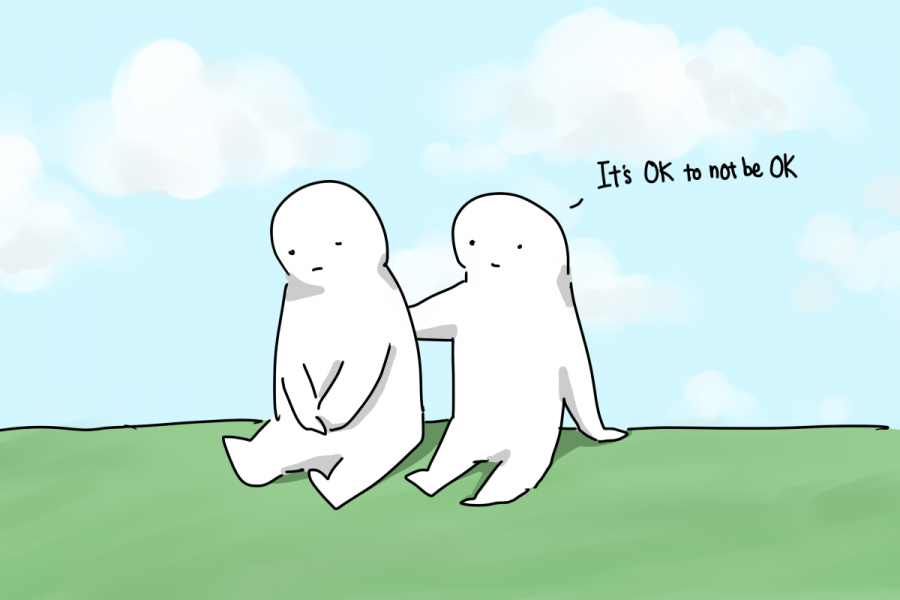
“The body is saying there’s danger, when in reality there’s none present,” explains Sadie Bingham, a clinical social worker who specializes in anxiety and provides therapy in Gig Harbor, Washington.
Panic attack triggers aren’t always easy to identify, so people who have one attack often worry about having more, especially in public.
Panic attacks usually feel very uncomfortable and cause significant distress. Many people believe they’re experiencing a heart attack or other life-threatening issue.
If you know someone who experiences panic attacks, there are several things you can do (and avoid doing) to help them in the moment.
Keeping your cool is one of the best ways you can help.
Panic attacks usually don’t last long. “The most intense feelings tend to last between 5 and 10 minutes,” Bingham explains.
But someone having an attack may not have much concept of time as it happens. They might feel terrified or think they’re about to die.
Even if you feel a little afraid yourself, stay calm. If your voice seems to help (and they haven’t asked you to keep quiet), talk to them in a calm voice.
If your voice seems to help (and they haven’t asked you to keep quiet), talk to them in a calm voice.
What to say
Try:
- reassuring them you won’t leave
- reminding them the attack won’t last long
- telling them they’re safe
Most people who experience panic attacks or live with other types of anxiety have their own go-to coping methods. When offering support, keep in mind your loved one knows best when it comes to what will help most.
During an attack, however, they might find it harder to communicate this. Consider asking in advance how you can offer assistance if they experience an attack around you.
During an attack, it’s okay to calmly ask what you can do to support them. Just prepare for the possibility of a short or curt response.
The fight-or-flight stress response can affect the ability to think and behave logically, according to Bingham. “Try to remain neutral, and don’t take their response personally,” she recommends.
What if they want me to leave?
As long as they’re not in immediate danger, take a few steps back and give them some space. Stay nearby so you can still keep an eye on things, and let them know that should they change their mind, you’ll come right back.
If you haven’t already, take some time to familiarize yourself with the early signs of a potential panic attack.
Panic attacks commonly begin with:
- a feeling of terror or dread
- hyperventilation or shortness of breath
- feelings of choking
- a pounding heart
- dizziness and shaking
Not everyone experiences panic attacks in the same way, so it’s best to ask what signs they tend to experience.
The sooner you realize what’s happening, the faster you can help them get to a more private place, or wherever they need to feel more comfortable.
A soothing, familiar voice helps some people, but try to avoid repeatedly saying things like “don’t worry” or asking them if they’re alright over and over.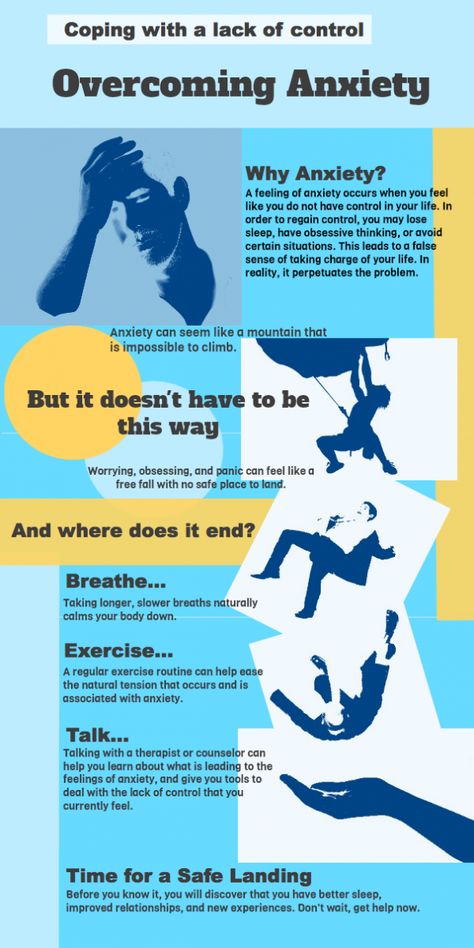
Of course you mean well, but your words may not have much benefit in the moment. They can also make the situation more stressful, since your loved one may believe they’re doing something wrong by not being alright.
How to make your words more actionable
Take action with your words by:
- asking if they want to leave the room and go somewhere else
- reminding them to keep breathing
- engaging them in light conversation, unless they say they don’t want to talk
Panic attacks can be confusing as well as scary. People generally can’t predict them and there’s often no clear cause. They can happen in stressful situations but also during calm moments or even during sleep.
It might seem helpful to tell your friend there’s nothing to be afraid of. But they’re probably perfectly aware there’s no actual threat.
That’s part of what makes panic attacks so confusing. The reaction matches a fear response — but nothing’s happening to cause that fear.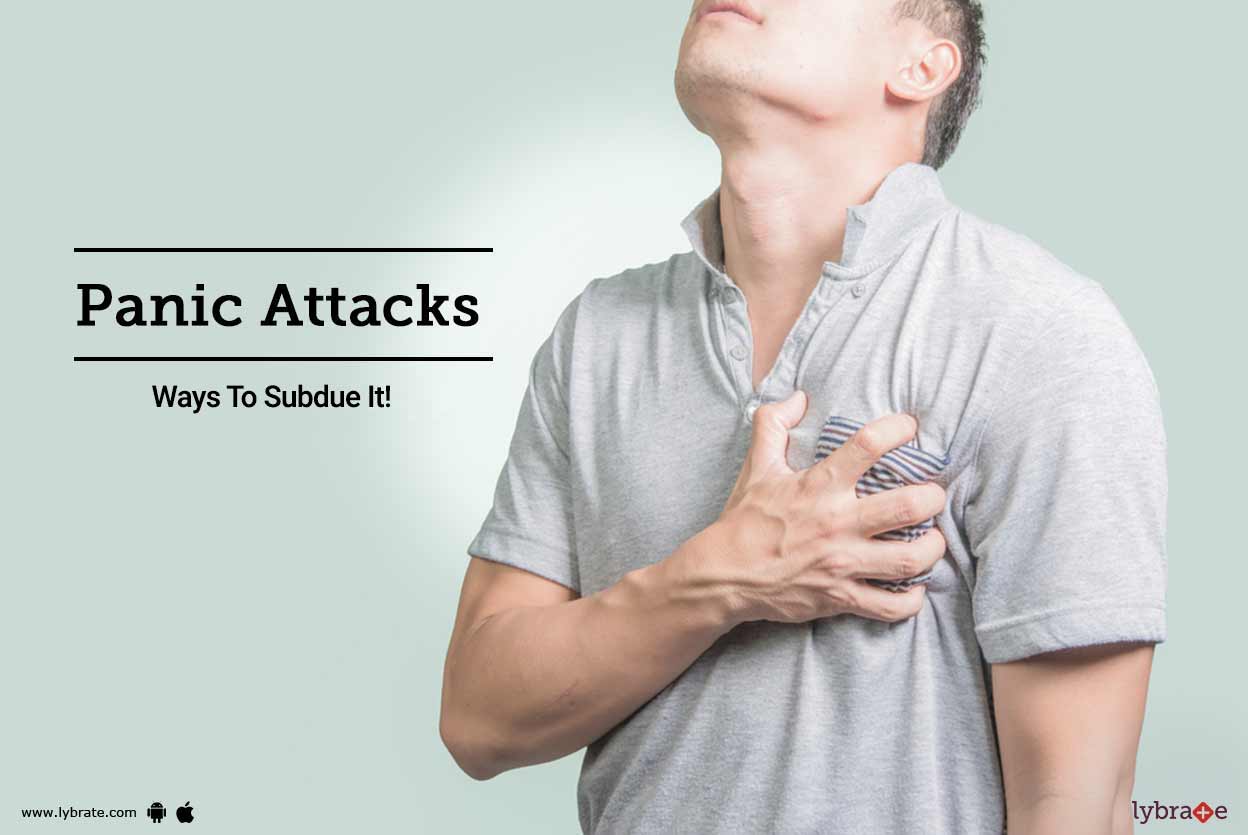 In response, someone who gets panic attacks might begin to fear the symptoms themselves, or link them to a serious health issue.
In response, someone who gets panic attacks might begin to fear the symptoms themselves, or link them to a serious health issue.
“It’s typical to feel embarrassed or ashamed of such an intense reaction,” Bingham explains. “But having a trusted companion offer compassion can allow space for the person to return to baseline.”
You can be that person even without understanding why they get panic attacks. That’s far less important than your ability to offer empathy and recognize their distress as real and significant.
People often have a hard time sharing their experiences with mental health issues, including panic attacks.
Some avoid talking about mental health issues because they believe others won’t understand what they’re going through. Others worry about being judged or told what they experience isn’t a big deal.
Outsiders often don’t understand the fear caused by panic attacks and may even consider it illogical.
But the response is real, and the person experiencing the attack can’t control it.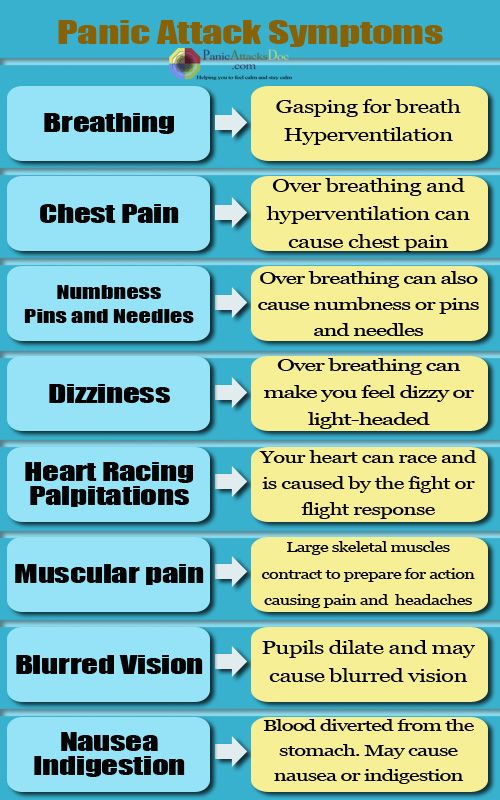
An empathic response can be as simple as, “That sounds really tough. I’m sorry you experience that. Let me know what I can do to support you.”
Grounding techniques can have benefit for a range of anxiety issues, including panic attacks.
“Grounding techniques can help contain panic attacks after they begin,” explains Megan MacCutcheon, a therapist in Vienna, Virginia.
These techniques help the person focus on what’s actually happening, not their fear of the attack. They’re often most helpful once the intensity of the attack has faded a bit.
Quick grounding tips
To help someone ground themselves, you can try:
- physical touch, like holding their hand (if they’re okay with it)
- giving them a textured object to feel
- encouraging them to stretch or move
- encouraging them to repeat a soothing or helpful phrase, like “this feels awful, but it’s not going to hurt me”
- talking slowly and calmly about familiar places or activities
Say you just sat with your friend while they had a panic attack. When it’s over, they seem calmer but tired. You had plans to see a show, one you’d both been looking forward to, but your friend asks you to take them home instead.
When it’s over, they seem calmer but tired. You had plans to see a show, one you’d both been looking forward to, but your friend asks you to take them home instead.
Naturally, you’re probably disappointed. But remember: Your friend can’t help what happened. They’re probably disappointed and exhausted. They may also feel bad about ruining your plans, which can compound the distress associated with the attack itself.
It’s common to feel completely wiped out as your body and its processes return to normal after an extreme fear response. Someone who’s just had a panic attack might not feel up to anything beyond quiet relaxation.
“Inquiring what they need and honoring that request is crucial,” Bingham says. “Asking too much after a panic experience can aggravate the healing process.”
You might think going to see the show will cheer them up or improve their mood, but forcing them to keep engaging when they would prefer space can keep that stress response lingering, Bingham explains.
If someone chooses to tell you about their panic attacks, take this as a sign of trust.
To show respect for their experience and honor this trust:
- respond with compassion
- be mindful of your words and actions, during an attack and at any other time
You might have all the best intentions, but it’s entirely possible to make someone feel bad without realizing you’re doing so.
Keeping these suggestions in mind can help you avoid unintentional harm:
Don’t compare normal stress and fear to panic
Maybe you’ve felt stressed or terrified in a dangerous situation. You might even have anxiety yourself.
These experiences aren’t quite the same as a panic attack, though. Avoid trying to draw comparisons between your different experiences. Unless you also get panic attacks, you probably don’t entirely understand how they feel.
If you have experienced extreme fear, let that memory inform you on what your friend is going through.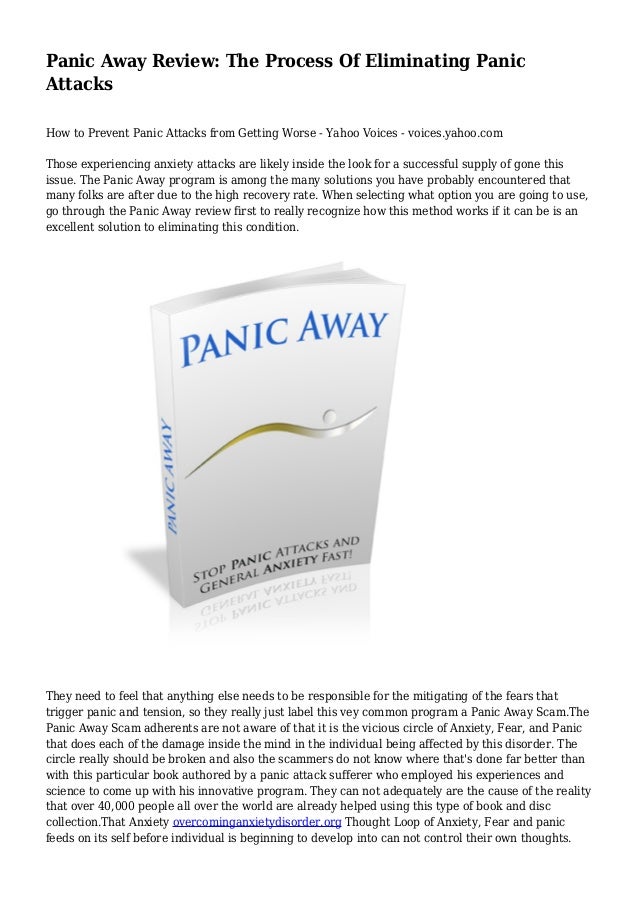 Remind yourself they aren’t just afraid or stressed.
Remind yourself they aren’t just afraid or stressed.
They may also feel:
- helpless
- unable to manage what’s happening
- physical pain or discomfort
Don’t shame or minimize
It’s pretty common to worry about having a panic attack, especially in front of strangers, or believe the attack might annoy or inconvenience friends or loved ones.
“People struggling with anxiety or panic attacks might intellectually understand the response is illogical. But hearing that from someone else can increase their isolation,” Bingham explains.
Avoid saying things like:
- “Just relax. There’s nothing to be afraid of.”
- “You’re upset over that?”
- “What’s wrong with you?”
You might not intend to make your friend feel ashamed, but denying the reality of their distress can certainly have that effect.
Don’t give advice
Not every coping technique works for everyone. Deep breathing and other relaxation techniques can have benefit, but they often help most when practiced regularly, MacCutcheon says.
“When these techniques are only utilized during moments of panic, they often wind up backfiring. Deep breathing turns into hyperventilating and the mind becomes too overwhelmed to focus on unfamiliar things.”
While it can help to remind your friend to breath, telling them to take deep breaths may not help.
In short, avoid telling someone how to manage symptoms. Sure, you may have heard yoga, meditation, or giving up caffeine can help. But you don’t know what your friend has already tried unless they’ve told you.
Wait until you’re asked for suggestions. If you have personal experience, you might say, “I get panic attacks too and I’ve found yoga really helpful. If you’re interested in trying it out, we could go together sometime.”
It can be frightening to watch someone have a panic attack, but at what point should you bring in additional help? It’s hard to say.
Calling your local emergency number might seem like the safest move, but this can often make the situation even more stressful for the person having a panic attack.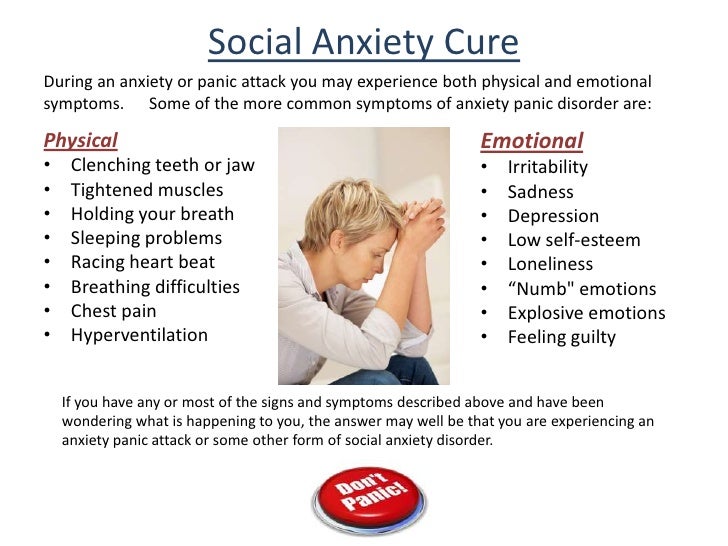
Simply sticking around and seeing them through the experience might not feel like much to you, but it can make a significant difference for the person having the attack.
That said, reach out for emergency help if:
- chest pain feels like squeezing (not stabbing) and moves to their arms or shoulders
- symptoms persist for longer than 20 minutes and get worse, not better
- shortness of breath doesn’t improve
- pressure in the chest lasts more than a minute or two
Crystal Raypole has previously worked as a writer and editor for GoodTherapy. Her fields of interest include Asian languages and literature, Japanese translation, cooking, natural sciences, sex positivity, and mental health. In particular, she’s committed to helping decrease stigma around mental health issues.
How to give first aid for a panic attack
April 12, 2016 Health
Panic attacks are something that everyone has heard about, but few have actually experienced. In this article, we will tell you how to behave in such a situation.
In this article, we will tell you how to behave in such a situation.
Let's imagine. You are walking down the street with your friend. He suddenly falls and severely injures his leg. Blood is flowing from the wound, your friend is in a lot of pain. What will you do in this situation?
Seems like a simple task. You will most likely try first aid and help a friend get to the emergency room. You may have a band-aid or bandage to cover the wound with, or a bottle of water to clean it out. In general, one way or another, you roughly know what to do: everyone is familiar with the rules for providing first aid. nine0003
But the situation is more difficult. What if your friend has a panic attack? How to proceed in this case? Few people know. But being able to help with a panic attack is just as important as with an injury or a fall. You don't know when you might need it, but if you find yourself in an emergency, you'll be glad you spared no effort to learn.
Panic attack is a sudden, inexplicable attack of severe anxiety and fear.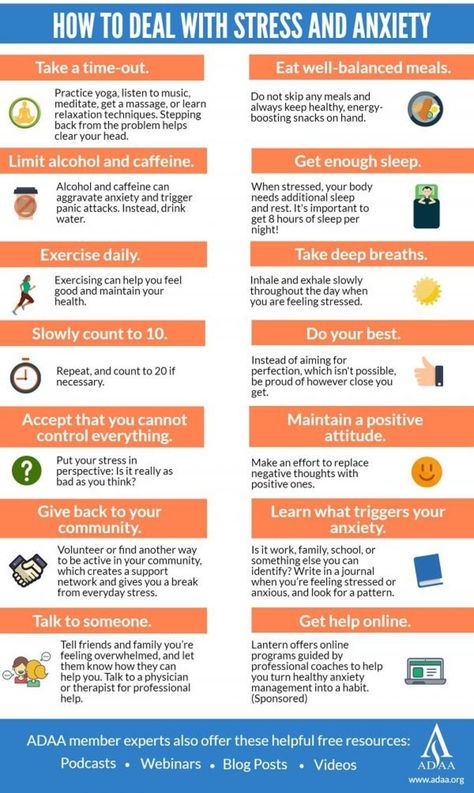 It may be accompanied by symptoms such as rapid heart rate, chills and sweating, difficulty breathing, nausea, and dizziness. Most often, a panic attack is very painful for the one who experiences it. nine0003
It may be accompanied by symptoms such as rapid heart rate, chills and sweating, difficulty breathing, nausea, and dizziness. Most often, a panic attack is very painful for the one who experiences it. nine0003
How to help someone during a panic attack
- Assess the risk of self-harm.
- Listen to the person without judging them.
- Comfort, reassure and tell the person what is happening to him.
- Encourage him to seek professional help. This is best done after the attack has passed: in a state of acute anxiety, a person is not up to it.
- Encourage him to learn self-help and other useful practices. nine0020
This is not a definitive guide to action, as situations can vary greatly, but rather a general guide that everyone can use. In addition, you need to be aware that you are not capable of making a diagnosis or providing qualified assistance. You only need to help the person cope with the attack.
Psychotherapist Elena Perova gives more specific advice and tells how to deal with someone who is experiencing a panic attack.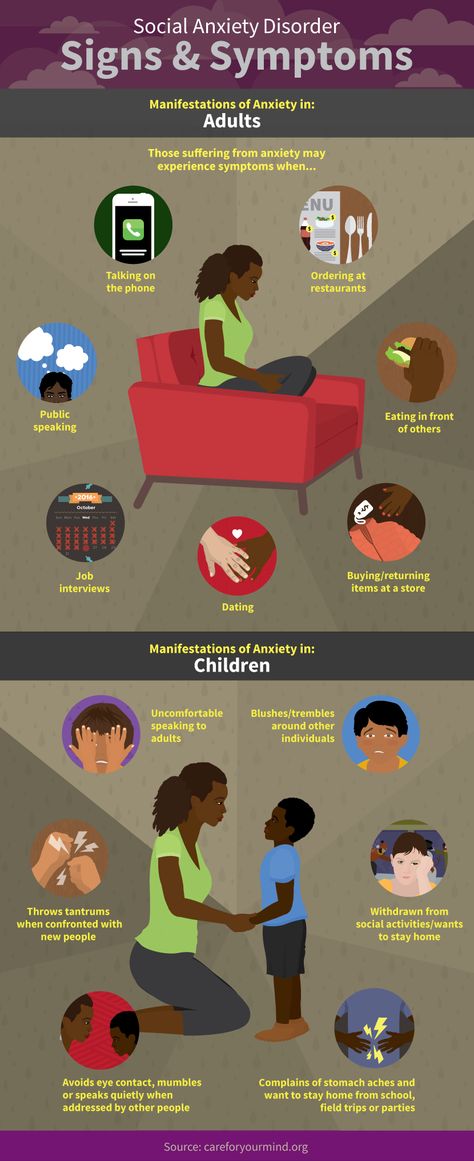
- Panic attacks often happen in the subway, in small rooms, so the first thing to do is take the person out into the open air. nine0020
- Sit him down and give him a drink. If the relationship allows, hold hands.
- Talk to the person in a soothing voice, gently ask if he understands what frightened him. If he wants to talk, let him talk. If he has nothing to say, try to draw his attention to what is happening around, to the fact that life goes on as usual.
It is important to be calm yourself and give the person the feeling that you are in control of the situation. Talk calmly, move calmly, so that he gradually adapts to your behavior and also calms down. nine0003
When you begin to inquire about help for panic attacks, you may become anxious. If everything is more or less clear with first aid for injuries, then here you have to deal with the human psyche, his brain. This means that each individual panic attack will be unique, and you need to quickly figure out how to help overcome it.
But don't worry: the lack of knowledge is much worse than the general and correct ideas about how you can help with a panic attack. nine0003
What to do in case of a panic attack?
. Psychologist's adviceUpdated October 27, 2022, 13:24
Shutterstock
Fear, fright and anxiety are evolutionarily necessary for a person to survive. However, sometimes high anxiety can provoke panic disorder, in which there are repeated bouts of severe anxiety - panic. If attacks occur frequently, the quality of life is rapidly reduced, so it is important to learn how to cope with them.
nine0002 RBC Life, together with experts, is figuring out how you can help yourself and your loved ones when faced with this destructive state.Contents
- What is it
- Symptoms
- Causes
- What to do
- How to help the person
What is a panic attack
Pexels
A panic attack is a sudden attack of anxiety, an acute fright, which is accompanied by a deterioration in well-being, unpleasant sensations in the body and autonomic disorders - rapid breathing, tachycardia, sweating, weakness, decreased pressure, tremor or a feeling of suffocation, lasting, as a rule, from 5 to 30 minutes. nine0003
nine0003
Usually a person is afraid of such a condition and perceives the symptoms as a manifestation of a heart attack or stroke. In this case, an uncontrollable fear of death may appear.
“A panic attack is not a diagnosable disease, but a symptom that may indicate that a person has an anxiety disorder, emotional exhaustion, or chronic stress. At its core, this is not a disease, it is a misinterpretation of the condition. And this condition arises due to chronic emotional overstrain,” explains Alexey Krasikov, founder of the School of Emotional Intelligence and Psychotherapy, consultant psychologist in the field of anxiety disorders and the development of stress resistance. nine0003
Psychologist Andrei Chernyshev tells how important it is to distinguish a panic attack from an attack of fear. In the first case, the episode will be limited in time: the attack usually lasts 15–20 minutes. This is due to the release of hormones - adrenaline, norepinephrine, cortisol.
Panic attacks are the result of destructive thoughts that a person constantly scrolls in his head. Concentrating on these scripts can cause impotence, headaches, or nausea. In addition, panic attacks can cause immediate harm to health, as attacks occur suddenly, sometimes while driving or in a dream, the expert notes. nine0003
Concentrating on these scripts can cause impotence, headaches, or nausea. In addition, panic attacks can cause immediate harm to health, as attacks occur suddenly, sometimes while driving or in a dream, the expert notes. nine0003
Panic attacks are a manifestation of phobias or anxiety-depressive disorders, says Sergey Pozdnyakov, head of the Center for Psychological Correction of Diseases at Medsi Group. Previously, panic attacks were diagnosed mainly in women aged 20–45, but today they appear in children of seven–eight years, as well as in people aged 70+. The increase in the number of disorders is influenced by the accelerating rhythm of life and the increase in the information flow, which constantly affects the nervous system. According to WHO, 30% of the world's population has experienced a panic attack at least once in their lives. nine0003
Panic attack symptoms
Shutterstock
As Aleksey Krasikov notes, a panic attack is often confused with a heart attack. But there are a number of nuances. For example, pain in angina pectoris is described as a “burning sensation in the chest”, and during a vegetative crisis, they may not be at all. Patients report feelings of anxiety, a feeling that the heart is not working “correctly”, but do not experience symptoms of angina pectoris. A panic attack is an emotional, not a physiological, disorder, so sedatives help to correct the situation. Drugs that stop cardiac symptoms are useless in this case, the psychologist adds. nine0003
But there are a number of nuances. For example, pain in angina pectoris is described as a “burning sensation in the chest”, and during a vegetative crisis, they may not be at all. Patients report feelings of anxiety, a feeling that the heart is not working “correctly”, but do not experience symptoms of angina pectoris. A panic attack is an emotional, not a physiological, disorder, so sedatives help to correct the situation. Drugs that stop cardiac symptoms are useless in this case, the psychologist adds. nine0003
Anastasia AfanasyevaPsychiatrist, psychotherapist, clinical director of the psychological platform Alter
“Panic attacks manifest through physical and mental symptoms. You can understand that this is a panic attack if there are at least two physical signs and at least one of the mental ones.
Physical symptoms of a panic attack may include:
- shortness of breath, feeling short of breath;
- rapid pulse (up to 130-170 beats per minute) and strong heartbeat; nine0020
- pain or discomfort in the region of the heart;
- dizziness, lightness in head;
- loss of stability or pre-syncope;
- flushes of heat or coldness in the body, chills;
- nausea;
- excessive sweating;
- tremors in the muscles;
- Numbness or tingling in the limbs.

The following manifestations are considered to be mental signs of a panic attack:
- fear of going crazy or losing control over oneself; nine0020
- fear of death;
- depersonalization and / or derealization - loss of connection with reality, a violation of an adequate perception of oneself and / or the surrounding space, a feeling that you are “not yourself” or the world around has become different, ghostly, unreal.
Causes of panic attacks
Shutterstock
Aleksey Krasikov notes that the main cause of a panic attack is fear. A person experiences unusual experiences and misinterprets them - believes in a catastrophe or feels the proximity of death. In this case, the balance between the sympathetic and parasympathetic nervous systems shifts towards the first. In fact, a panic attack is an instinct of a person who scared himself. nine0003
A person does not have a predisposition to panic attacks, a study by the US National Institute of Mental Health has proven [1]. Their main cause is a general anxiety condition caused by various circumstances.
Their main cause is a general anxiety condition caused by various circumstances.
Among the risk factors for the development of panic attacks [2]:
- stress associated with illness or death of loved ones;
- traumatic event in the past: violence, accident, emergency;
- changes in life: change of residence, job, divorce, birth of a child; nine0020
- unresolved childhood injuries;
- smoking and excessive caffeine intake;
- phobias, depression, obsessive-compulsive disorders.
Anastasia Afanasyeva:
“A panic attack is an excessive reaction of the body to a stimulus that our brain regards as a danger to life. That is why one of the characteristic signs of a panic attack is the fear of dying or not getting help.
How does a panic attack occur? nine0017
The brain receives a signal that it labels as a threat to our existence, and begins to secrete norepinephrine, which, in turn, stimulates the adrenal glands to produce stress hormones - adrenaline and cortisol.
When adrenaline enters the bloodstream, it triggers automatic survival responses: fight, run or freeze.
In order for the body to perform these actions, adrenaline acts on various body systems, making them work faster and more intensively. For example, in order to strike or run away, our muscles must actively contract, for this they need energy, which is taken from oxygen and glucose in the blood. Therefore, the lungs begin to breathe faster, and the heart begins to beat harder to pump blood faster. nine0003
These are the physical signs we see in a panic attack.”
How to deal with a panic attack
Unsplash
If you suspect that you have an anxiety disorder, psychologist Alexei Krasikov advises you to see a doctor. It is necessary to conduct an examination of the body: get advice from a cardiologist and a neurologist, evaluate clinical blood indices, hormone levels, and do an ultrasound scan. If health problems are identified at this stage, the patient will be referred to a specialized specialist for the selection of therapy. nine0003
nine0003
If no diseases are detected, psychotherapists and psychologists are involved. They will teach you how to respond appropriately to life's circumstances.
Such therapy includes:
- informing about the causes and mechanism of panic;
- formation of the skill of correct interpretation of the state;
- exclusion of avoidant behavior, leveling of fears;
- study of the anamnesis and causes that provoked the crisis;
- Reconstruction of the system of relations, training in rational response. nine0020
According to the psychologist, sedatives are required only at the beginning of therapy or in especially severe cases. Duration of admission depends on the specific case and usually takes from several months to a year.
Panic Attack Self Help
Pexels
Here are some tips from psychologist Aleksey Krasikov on how to deal with an attack on your own:
- Realize that it was just an adrenaline rush during the fright.
 This in itself is completely safe. nine0020
This in itself is completely safe. nine0020 - Remember the main rule: "The more I resist, the harder it will be for me." No need to do anything, no matter how strange it may sound: no running, no fussing. Breathe deeply and evenly.
- Try to let the stress and fear go through you.
- During a panic attack, a person concentrates on his body, closes and thus only stimulates panic. Therefore, it is important to switch to something else. You can divert attention to the pain sensation, for example, pinching your earlobe or other part of the body. nine0020
- You can resort to breathing into a paper or plastic bag, through a folded handkerchief or scarf, to reduce the level of oxygen in the blood, which helps to calm down.
- Call someone. Talking on the phone can be a very good distraction from the current state.
Andrey Chernyshev says that the fear that causes panic is accompanied by tunnel thinking. In this case, a person cannot be distracted from experiences.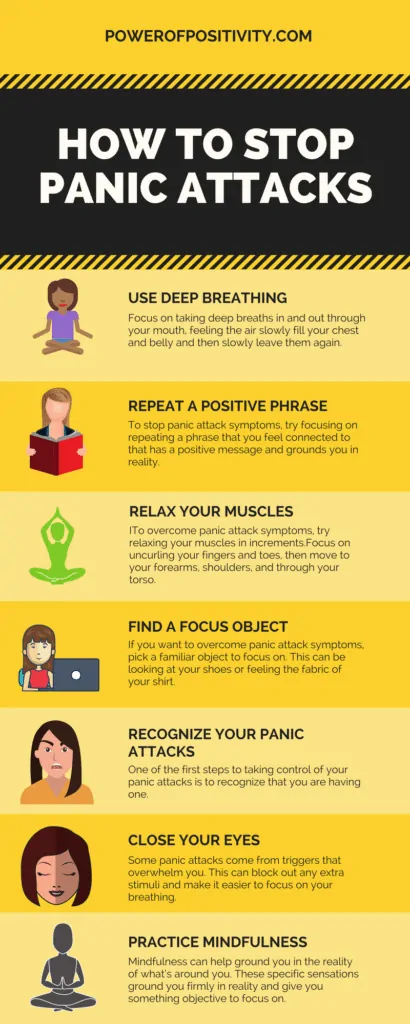 It's like blinders that are put on horses to keep them looking straight ahead. A person who has succumbed to panic also perceives information. Therefore, in order to stop an attack, it is important to stop and think in time. It is difficult to do this at the moment of panic, but you can think over the tactics of behavior while in a calm state. The psychologist advises to remember people, events or things that give a sense of security. Or set a reminder on your phone and write anything that will help you feel better. nine0003
It's like blinders that are put on horses to keep them looking straight ahead. A person who has succumbed to panic also perceives information. Therefore, in order to stop an attack, it is important to stop and think in time. It is difficult to do this at the moment of panic, but you can think over the tactics of behavior while in a calm state. The psychologist advises to remember people, events or things that give a sense of security. Or set a reminder on your phone and write anything that will help you feel better. nine0003
Anastasia Afanasyeva:
“It's paradoxical as it may seem, the key rule for coping with a panic attack is not to react to it in any way. In fact, this is biologically justified: when adrenaline rages in the body and causes all those signs of a panic attack that we talked about, a person perceives these symptoms as a sign that something terrible will happen to him now, and begins to worry even more. So we find ourselves in a vicious circle: adrenaline is released again in the body, and all sensations are intensified.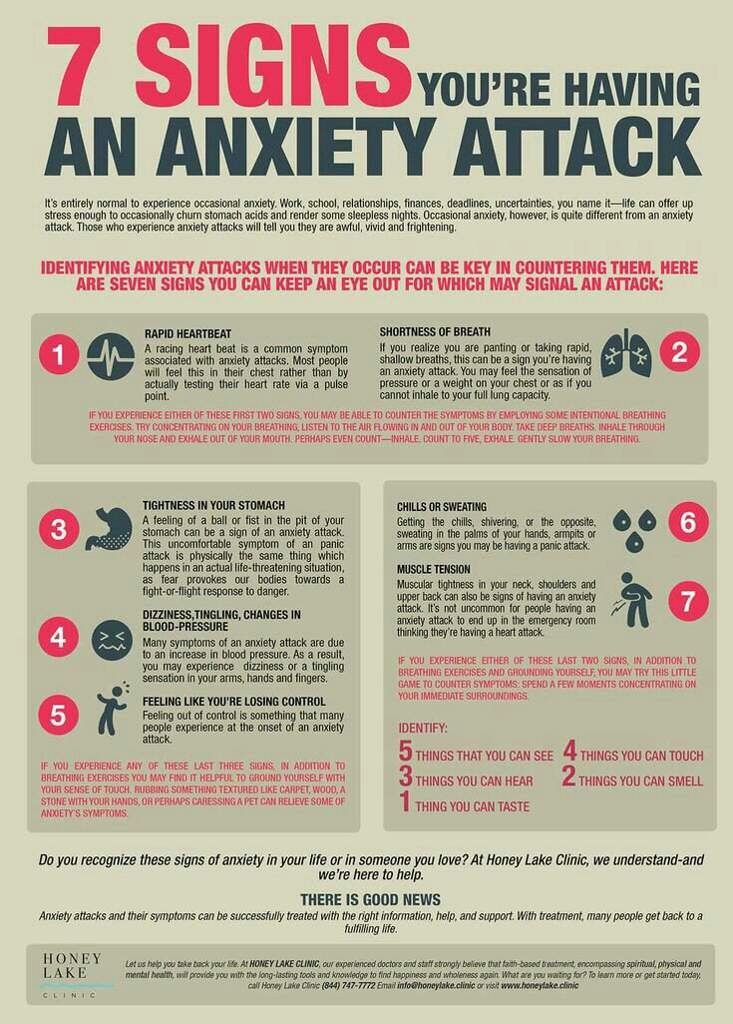 nine0003
nine0003
If we realize that there is no direct threat to our life and that our brain is just "playing it safe", then the panic will go away in just a few minutes.
Therefore, at the moment of great stress, it is important to remember that this is only an adrenaline rush and nothing threatens us physically. This reaction will quickly end if we stop feeding it. Try to imagine that this feeling of anxiety is like a wave that rolls in and gradually fades.
It also helps at times like this to just keep doing what you were doing, like walking down the street. nine0003
Breathing practices are very helpful. They activate the parasympathetic system, which creates a sense of security.
- You can focus on your breathing by consciously observing inhalation and exhalation, feeling how cold air passes through the respiratory tract and comes back warm.
- Another good exercise is "4-7-8": four counts - slow breath in, seven counts - breath holding and eight counts - long calm exhalation.
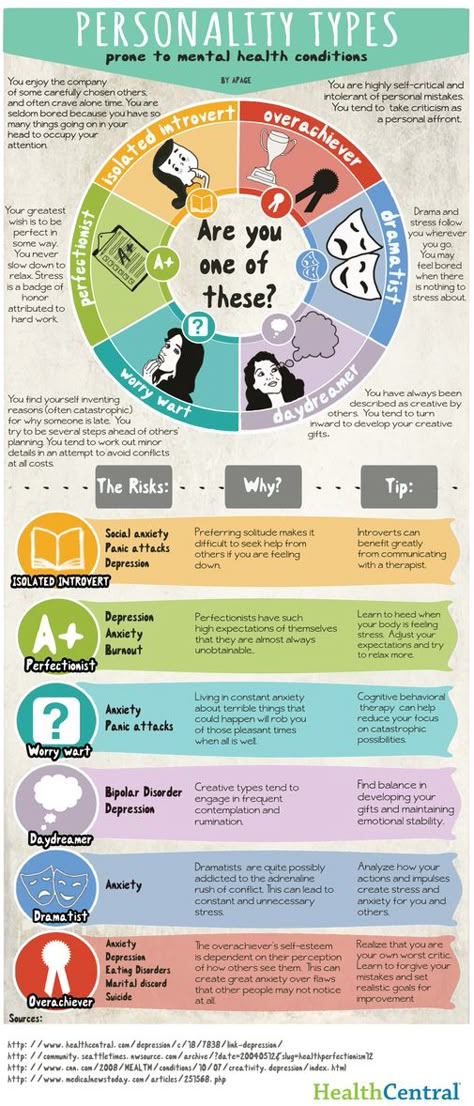
Physical activity is also important, especially outdoors. Walk, run, jump, dance - movement helps to work off excess adrenaline and complete the cycle of stress response. nine0003
Finally, look to others for support. If there is someone around to talk to, or better yet, hug, don't hesitate to ask for it.
What you definitely shouldn't do is eat up panic or fight it with alcohol or other substances. This may provide temporary relief, but in the end it will only aggravate your condition and lead to other unpleasant consequences. The best way to deal with anxiety is to allow yourself to experience those emotions and reactions rather than trying to dull them. nine0003
If you have panic attacks on a regular basis and you feel that you cannot cope with them on your own, do not hesitate, contact a psychotherapist.
How to help a person with a panic attack
Pexels
Anastasia Afanasyeva:
“If we see that someone has a panic attack, the main thing we can do is help the person survive it.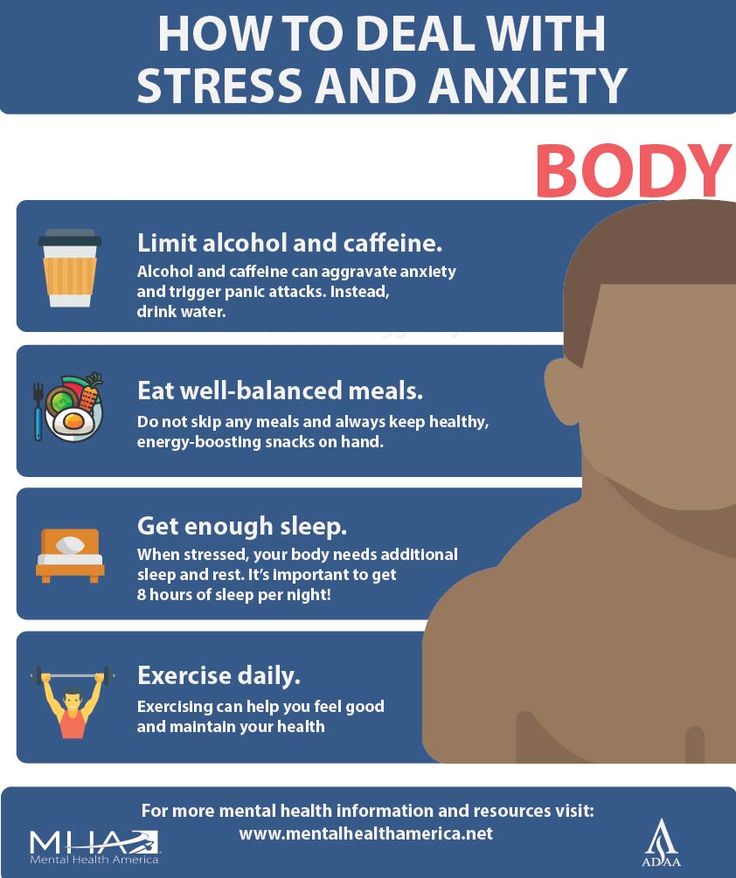
.jpg)

